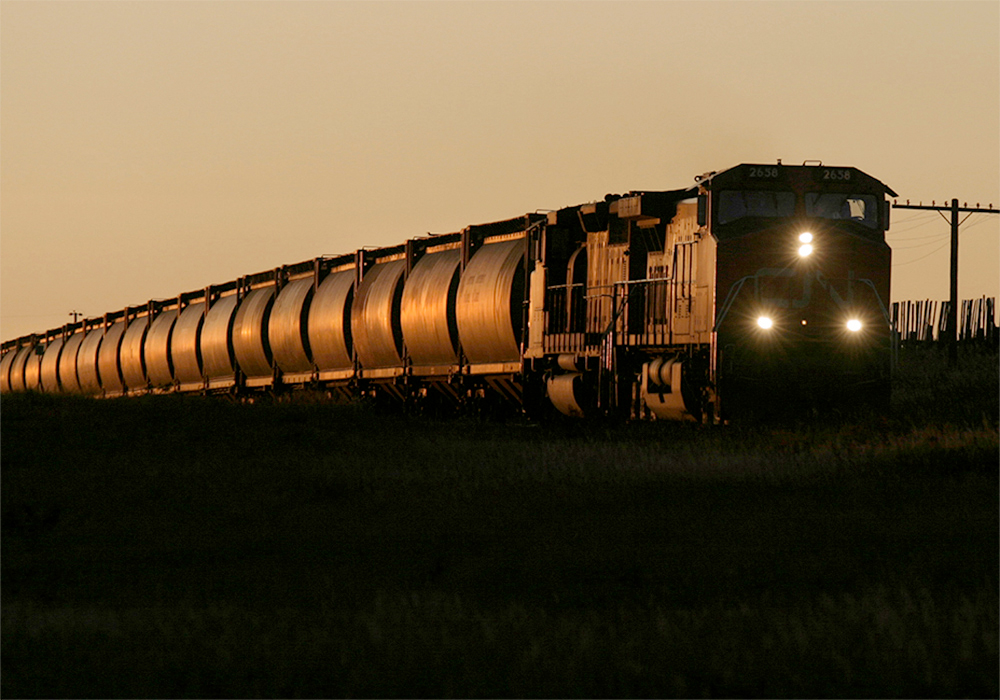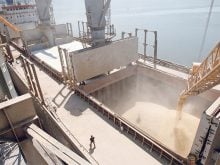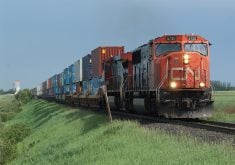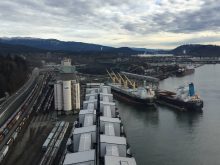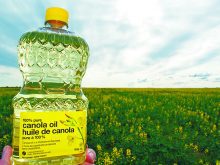There hasn’t been a lot of talk about grain rail transportation this winter.
The system’s humming along at a high level of efficiency, farmers’ grain is moving and things seem to be just about right.
In fact, the “just about right” situation was the bottom line of Manitoba agricultural economist Derek Brewin’s presentation at Manitoba Ag Days: we appear to be in a Goldilocks moment in grain-handling with railways and elevator companies both investing in more capacity, providing farmers with good service at competitive prices. (See related story here.)
Read Also
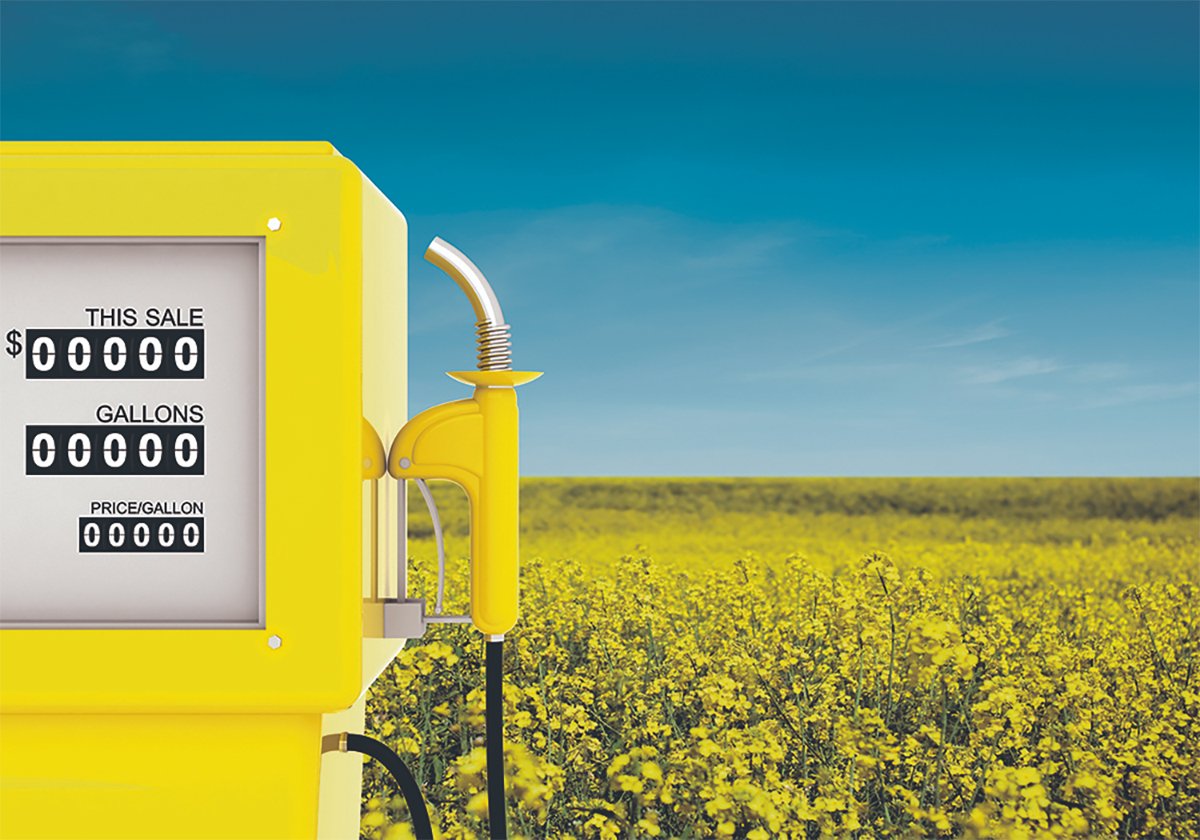
Biofuel sector happy with federal budget
Advanced Biofuels Canada says new Biofuel Production Incentive is a lifeline until CFR amendments are in place.
That was the highlight for me from the giant farm show this year.
So often we spend our winters debating and denouncing the status of the grain transportation system in bad times. We seldom get a chance to enjoy the good times.
Crop prices have sagged in recent months, leaving farmers looking at thin profitability for 2024-25. Could things get worse? Sure. But most farmers at Manitoba Ag Days seemed to be in a cheery mood, looking forward to the next crop and planning to improve their machinery and technology as much as they can justify.
The biggest risk to western Canadian farmers was pegged by journalist and former White House speechwriter David Frum, who said U.S. political stability is the greatest geopolitical threat he sees in today’s world.
With U.S. social cohesion fraying and Donald Trump’s antagonism to both the rule-of-law and democracy possibly occupying the White House again, America might soon not be in a position to fulfil its traditional global roles.
Great power conflicts are becoming imaginable again, after decades in which those powers tried to avoid direct clashes. Russia’s invasion of Ukraine is just a taste of what a Chinese assault on Taiwan would be.
That’s to say nothing about free trade, to which Trump is also antagonistic. Last Trump-time, Canada-U.S. free trade almost died and the Asia-Pacific trade deal took a hit.
Canadian farmers’ best export markets tend to be just south of the border, so any eruption of agriculture-focused protectionism would have a serious and immediate affect on farmer incomes.
Other risks to farmers are popping up in this winter’s farm conferences, meetings and shows.
One that’s particularly worrisome is the federal government’s obsession with turning every element of the research it funds into a climate change initiative.
That focus isn’t key to producing better crops that make farmers more money, become more sustainable and protect the farming environment, resulting in a tragic misallocation of funds that should be improving farmers’ operations.
This perversion of focus doesn’t just affect the federal dollars but also twists the matching money that farmers and other funders put into cost-shared programs. Basically, if a research project can’t be packaged as a climate change initiative, it won’t receive federal dollars, which means other players, such as farmer-funded crop commissions, are much less likely to undertake them at all.
This isn’t something that will have a big impact on farmer margins in 2024. It’s a long-term threat, which could cause lasting damage. That’s why it’s a serious issue.
We shouldn’t take for granted our high-functioning agricultural system. It’s the product of decades of dedication to making things better for farmers.
If you want to see an example of a country that took its blessings for granted and then threw them away, have a look at Argentina.
From being a booming nation as advanced as Canada in the 1930s, Argentina has fallen into the role of perennial basket case. Military takeovers strangled its democracy, populist payoffs created a uniquely Argentine and weird form of socialist-klepto-capitalism, and an unwillingness to confront unpleasant realities has caused its reborn democracy to continue to follow the same pattern of populist payoffs, graft and denialism to keep it in the basket.
While some are thrilled to see that similar-to-Canada nation electing a libertarian as president, one who has been vowing to hurl Argentina back into the world of free markets and reason-based economics, he’s so extreme and idealistic he’s likely to simply reproduce his nation’s dangerously volatile oscillations and bring about the next era of chaos and self-destructive behaviour.
For all the heated-up rhetoric we have here in Canada, we are still a model of reasonable politics. Our population doesn’t seem to be calling for radical anything. We’re still able to deal with our problems and make things better. We’re better off than a lot of our global colleagues. Farmers benefit from that.
Our rail system is running well. That’s good. Trump is likely to be the next U.S. president. That’s bad. Our agriculture research funding is being tortured and twisted to serve non-agricultural needs. That’s dangerous.
But we’re still a vibrant, democratic, rule-of-law, trade-positive nation. We walk toward the challenging future in about as good a situation as we can hope for.
Farmers are right to be optimistic this winter. If anybody’s ready to face the future, we are, so let’s look forward to next-year-country.


